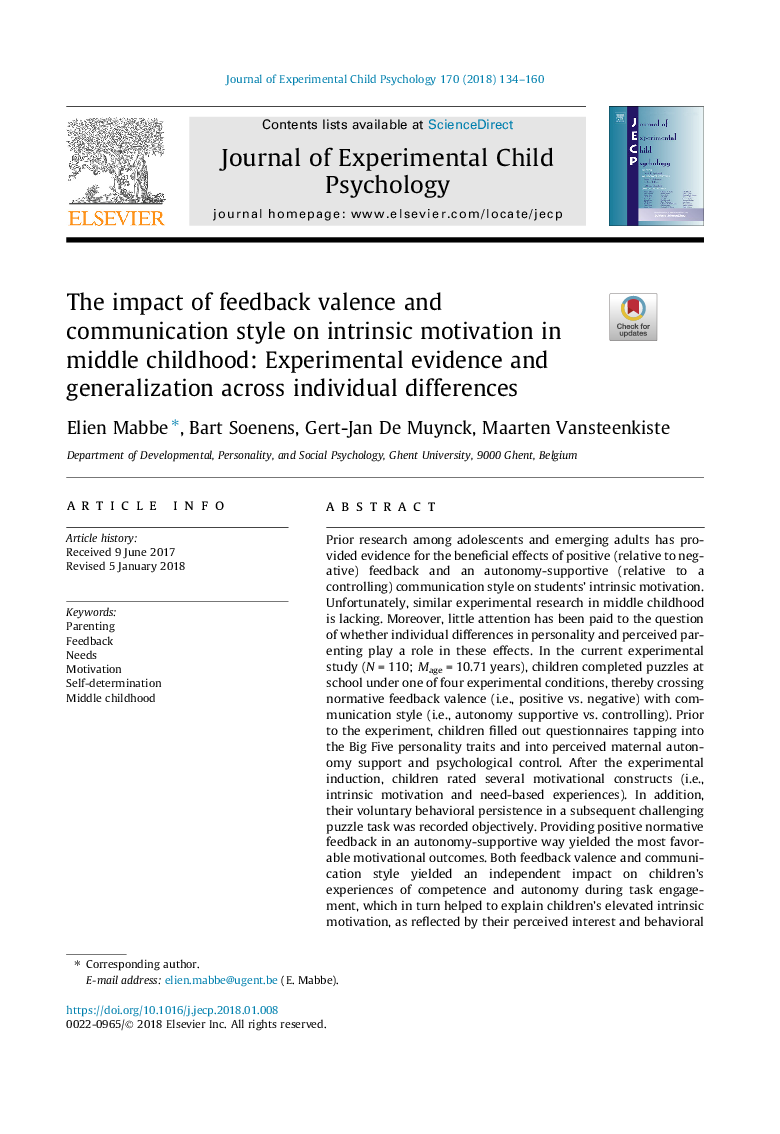ترجمه فارسی عنوان مقاله
تأثیر واکنش و سبک ارتباطی بر انگیزه ذاتی در دوران کودکی متوسط: شواهد تجربی و تعمیم در تفاوت های فردی
عنوان انگلیسی
The impact of feedback valence and communication style on intrinsic motivation in middle childhood: Experimental evidence and generalization across individual differences
| کد مقاله | سال انتشار | تعداد صفحات مقاله انگلیسی |
|---|---|---|
| 123753 | 2018 | 27 صفحه PDF |
منبع

Publisher : Elsevier - Science Direct (الزویر - ساینس دایرکت)
Journal : Journal of Experimental Child Psychology, Volume 170, June 2018, Pages 134-160
ترجمه کلمات کلیدی
والدین، بازخورد، نیاز دارد، انگیزه، تعیین خود، دوران کودکی،
کلمات کلیدی انگلیسی
Parenting; Feedback; Needs; Motivation; Self-determination; Middle childhood;

